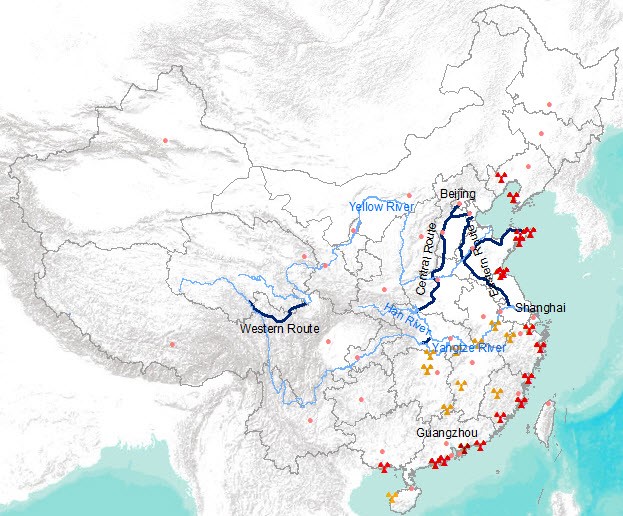Critical assessment of mega-projects is emerging as a much-needed discipline in an era when, in many places, resource demands exceed environmental capacity. This techno-economic study, using the Desalination Economic Evaluation Program developed by the International Atomic Energy Agency, shows that by 2030, China will have the capacity to produce 23.1 billion m3 of water annually, at $0.86/m3, as a co-product of electricity generation through nuclear power, provided that the country favors desalination over water diversion. We calculate that the resulting water production and supply chain needed to eradicate absolute scarcity for 0.16 billion people will cost between $0.99/m3 and $1.79/m3, and we prove that this will be affordable, even for the poorest inhabitants. We then compare both coal and nuclear desalination with the currently planned South–North Water Transfer Mega-Project and show that, while the short-run cost of water diversion is lower, critical vulnerabilities and future resource demands favor nuclear desalination.
PublicationJournal Article Assessing the impacts of nuclear desalination and geoengineering to address China’s water shortages
Published:
April 16, 2015
Author(s):
Publication Type:
Journal Article
Abstract:
